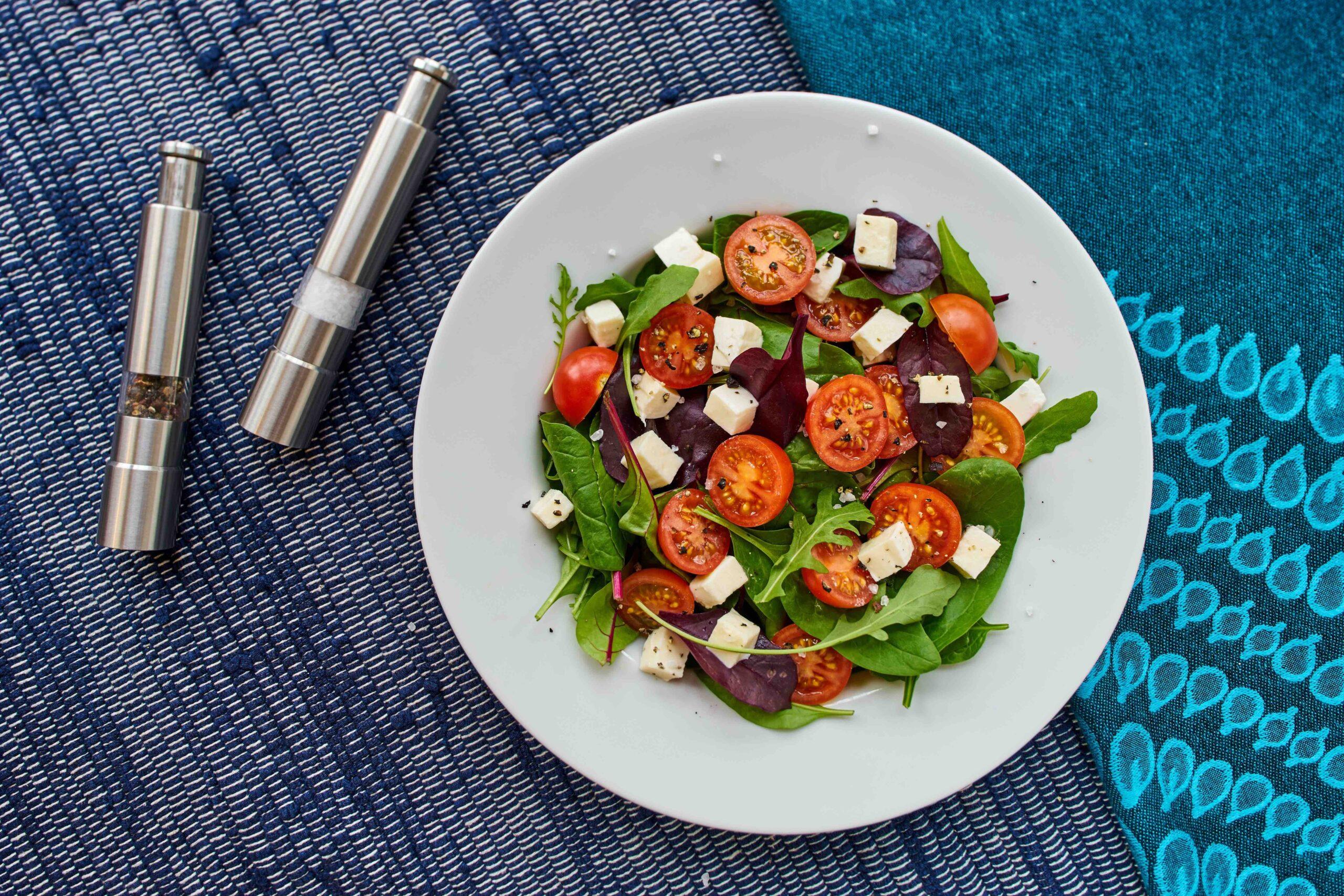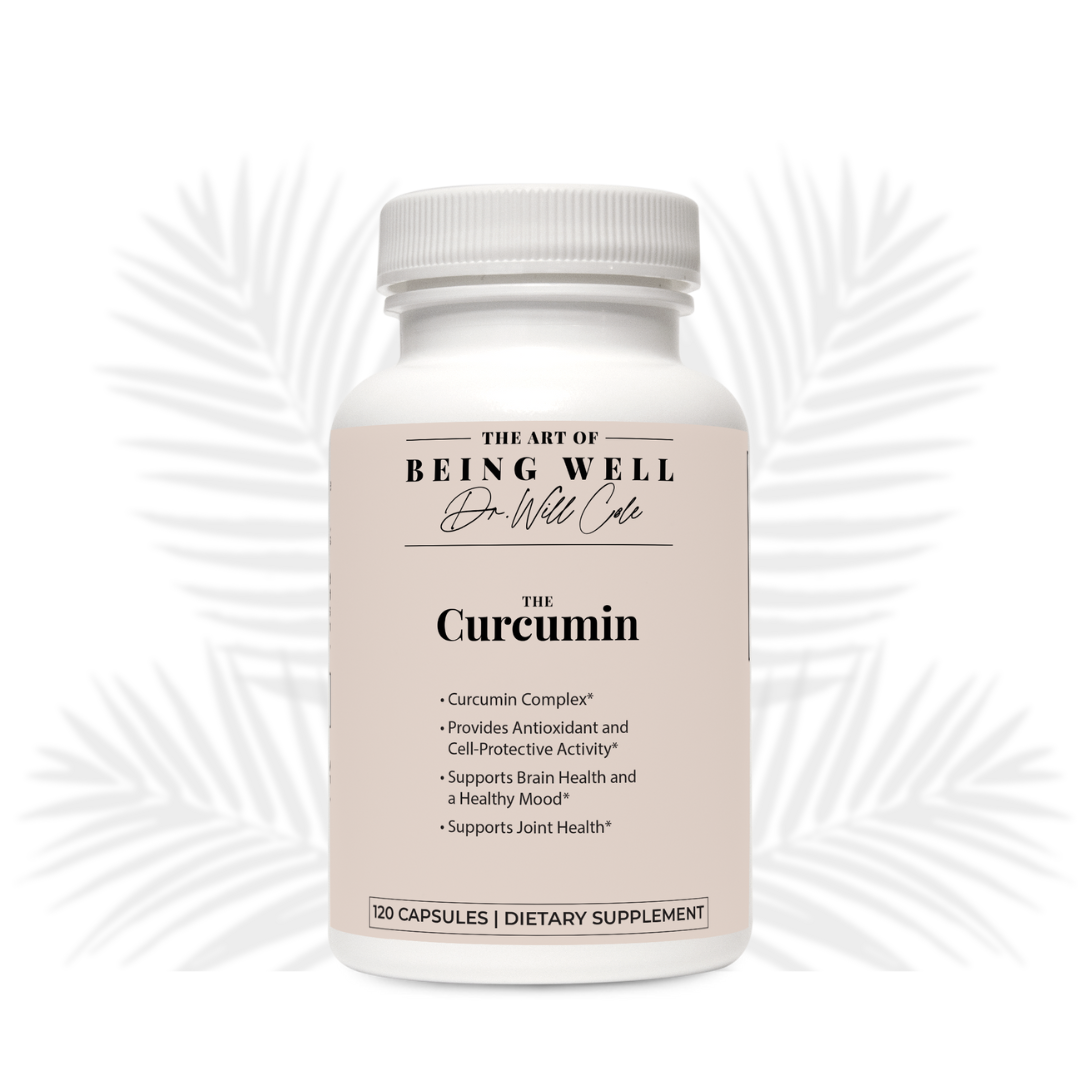A 7-Day Rheumatoid Arthritis Diet Plan For Inflammation Relief

You might be surprised to find that the symptoms of rheumatoid arthritis can be helped by what you eat. As a functional medicine expert, I’m here to tell you that there is hope for healing – and a lot of it comes down to the food you eat.
By understanding the root of inflammation when it comes to your arthritis, you can begin to craft a diet plan that puts you on the path to healing.
Read on to see what foods have anti-inflammatory properties, which aren’t as helpful, and a meal plan full of great options for an anti-inflammatory rheumatoid arthritis diet.
The Food-Inflammation Connection
For every medical condition and every — especially inflammatory diseases — there are foods and ingredients that can help and those that can hurt. Certain foods — which we will talk more about later on — are known to trigger gut permeability and more inflammation. There are also certain foods that directly fight inflammation and lower pro-inflammatory cytokines.
The mismatch between modern food and our biochemistry has contributed to the dramatic rise in autoimmune conditions. Our food supply has drastically changed due to the increase in processed foods and chemical additives, yet our genetics haven’t changed in thousands of years. We haven’t been able to adapt to these extreme changes in the food we eat.
While there is no “one-size-fits-all” diet, certain things like processed foods and chemical additives are inflammatory for most people, especially for those who already have autoimmunity.
The best diet for rheumatoid arthritis eliminates inflammatory foods and prioritizes nutrient-rich foods. For example, a variation of the Mediterranean diet (though I would cut out the grains), a plant-based diet, or a plant-rich ketogenic diet may all be good options for patients with RA.
Getting food intolerance labs and doing an elimination diet can help you further determine what foods your body loves and what foods lead to inflammation. A rheumatoid arthritis diet plan to overcome your symptoms includes mostly anti-inflammatory foods, and few to none of those that are linked to inflammation.
Best Foods For Managing RA Symptoms
The following foods have been linked to anti-inflammatory effects while offering well-rounded nutrients that provide health benefits and help your body function optimally. I include several foods below that are rich in polyphenols (a type of antioxidants) and micronutrients that have been studied extensively for their anti-inflammatory effects on arthritis. (1)
A good rheumatoid arthritis diet plan should generally include:
- Healthy fats: Incorporate healthy fats, such as fatty fish, avocados/avocado oil, coconuts/coconut oil, nuts and seeds (chia, hemp, pumpkin, flax seeds, etc.), extra virgin olive oil, and grass-fed beef. (2) Fat has gotten a bad reputation for decades. However, healthy fats are absolutely essential for brain health, hormones, and inflammation levels.
- Cruciferous vegetables: Add cruciferous veggies to your diet, like broccoli, Brussels sprouts, and dark leafy greens. These veggies are loaded with sulfur and vitamin B that fuel your methylation — the biochemical superhighway that controls your ability to detox and manage inflammation levels. (3) Eating a variety of vegetables in a multitude of colors will also provide your body with a wide range of micronutrients needed to benefit your overall health.
- Antioxidant-rich fruits and berries: Fresh fruits like blueberries, raspberries, pomegranates, and apples. These fruits all contain high levels of beneficial antioxidants that work to inhibit oxidation and cellular damage from life stressors like toxins, stress, and poor diet that lead to chronic inflammation. (4)
- Clean animal protein: Wild-caught seafood, grass-fed beef, poultry (including chicken), and organ meats can all be great components of an anti-inflammatory diet. As well as healthy fats, proteins like these contain a variety of nutrients that have been linked to decreased inflammation, such as B Vitamins and healthy omega-3 fatty acids.
- Legumes: Legumes (such as beans, chickpeas, lentils, and peas) are antioxidant and nutrient-rich foods, and are often recommended for RA patients. (2) However, I find that a lot of my patients are sensitive to legumes (making them inflammatory for those people), so be cautious here and make sure to listen to your body.
- Herbs + spices: Turmeric's high curcumin content is known to lower inflammation, including in cases of rheumatoid arthritis. (6) Take advantage of spice synergy and pair turmeric with ginger and black pepper, which increases curcumin bioavailability when eaten together or taken together in supplement form.
- Tea: Teas are some of the best inflammation-fighting drinks on the planet. Earl grey tea made with bergamot oil is high in the antioxidant theaflavin, which works to drive down inflammation by down-regulating pro-inflammatory cytokines. (7, 8) Green tea is a great anti-inflammatory beverage since it contains high levels of the beneficial catechin, epigallocatechin gallate (EGCG). Studies have shown that EGCG can boost your anti-inflammatory Nrf2 pathway and down-regulate your pro-inflammatory Nf-kB pathway. (9)
Foods You Should Avoid
Since RA is a condition I see often in my functional medicine telehealth clinic, I am often asked the question, “What foods make rheumatoid arthritis worse?” While you should consider your own bio-individuality, some foods are generally known to exacerbate arthritis and inflammation in general.
Here are some of the foods you may want to avoid or pay attention to:
- Gluten: Many people think you are only intolerant to gluten if you are diagnosed with celiac disease. However, celiac is an autoimmune disease that is just on the extreme end of the broader gluten-intolerance spectrum. (11) If you have rheumatoid arthritis, gluten can contribute to high inflammation levels.
- Dairy: There are components of dairy that are often inflammatory, especially if you have rheumatoid arthritis. Casein, the main protein found in dairy, has been found to be an inflammation trigger for people with autoimmune conditions due to the fact that most dairy in America contains the inflammatory A1 casein subtype. (12)
- Refined sugar: Refined sugars cause metabolic problems and increased inflammation. They also feed bacterial dysbiosis, which can elevate inflammation in the body, harming gut health and microbiome.
- Nightshades: Some people with rheumatoid arthritis may react to nightshades, a family of vegetables that includes tomatoes, peppers, potatoes, eggplants, goji berries, and some spices (e.g. cayenne pepper). Alkaloids in the skins of these nightshade plants can cause an inflammatory response in the bodies of some susceptible people. (13)
- Industrially processed seed oils: Avoid margarine or “buttery spreads,” canola oil, corn oil, grapeseed oil, rice bran oil, safflower oil, soybean oil, sunflower oil, vegetable oil. These are all highly processed, highly inflammatory, and they also oxidize with heat exposure — even ingesting them at room temperature can oxidize them due to your body heat. (14)
- Coffee: One study found that coffee consumption may increase rheumatoid factor (a protein produced in RA patients) in the blood. (10) However, not everyone reacts to coffee, and it has also been shown to have anti-inflammatory effects in some research, so this is more of an individual decision.
7 Day Rheumatoid Arthritis Diet Plan
So, what meals are good for rheumatoid arthritis? Now that you know which foods are beneficial for rheumatoid arthritis, it's time to put them all together for the ultimate rheumatoid arthritis diet plan.
This meal plan will help to give you an idea of all the amazing meals you can eat while still facilitating your healing.
Day 1
- Breakfast: Overnight chia seed pudding made with coconut yogurt and berries
- Lunch: Spinach salad with tuna, avocado, walnuts, and balsamic dressing
- Dinner: Grilled wild-caught salmon with a side of sauteed asparagus and Brussels sprouts
Day 2
- Breakfast: Sweet potato “toast” with smashed avocado
- Lunch: Burger salad topped with onions, avocado, and pickles
- Dinner: Walnut-crusted baked halibut with roasted veggies of your choice
Day 3
- Breakfast: Berry smoothie with spinach, blueberries, strawberries, and collagen protein powder
- Lunch: Chicken or tuna salad with grain-free crackers
- Dinner: Salmon poke bowl with cauliflower rice, coconut aminos, and avocado
Day 4
- Breakfast: Green smoothie with spinach, green apple, celery, and avocado
- Lunch: Spinach salad with tuna, walnuts, avocados, and balsamic dressing
- Dinner: Lettuce-wrapped burgers and homemade sweet potato fries
Day 5
- Breakfast: Overnight chia seed pudding made with coconut yogurt and berries
- Lunch: Chicken or tuna salad with grain-free crackers
- Dinner: Ground beef, chicken, or shrimp tacos wrapped in lettuce with extra guac and cilantro
Day 6
- Breakfast: Berry smoothie with spinach, blueberries, strawberries, and collagen protein powder
- Lunch: Spinach salad with tuna, walnuts, avocados, and balsamic dressing
- Dinner: Chicken stir-fry with cauliflower rice, coconut aminos, and broccoli
Day 7
- Breakfast: Overnight chia seed pudding made with coconut yogurt and berries
- Lunch: Chicken or tuna salad with grain-free crackers
- Dinner: Grilled wild-caught salmon with a side of sauteed asparagus and Brussels sprouts
Learn how to reverse your autoimmune symptoms, reduce inflammation, and balance your immune system through my self-directed functional medicine course, Mastering Autoimmune Conditions and Inflammation.
FAQs
How Functional Medicine Can Help You Heal
Following an RA diet plan like this one can be the first step in your healing journey, but sometimes, you need a little extra help identifying your specific triggers. In my telehealth functional medicine clinic, we run extensive labs and take a comprehensive look at your health to put together a diet plan and identify wellness tools that work for your specific health case.
If you are ready to take back your health and put your rheumatoid arthritis into remission, schedule a telehealth functional medicine consultation today.
As one of the first functional medicine telehealth clinics in the world, we provide webcam health consultations for people around the globe.
View More At Our Store
Purchase personally curated supplements
and Dr. Will Cole’s books!

The information on this website has not been evaluated by the Food & Drug Administration or any other medical body. We do not aim to diagnose, treat, cure or prevent any illness or disease. Information is shared for educational purposes only. You must consult your doctor before acting on any content on this website, especially if you are pregnant, nursing, taking medication, or have a medical condition.
Our content may include products that have been independently chosen and recommended by Dr. Will Cole and our editors. If you purchase something mentioned in this article, we may earn a small commission.

BY DR. WILL COLE
Dr. Will Cole, DNM, IFMCP, DC is a leading functional medicine expert who consults people around the globe, starting one of the first functional medicine telehealth centers in the world. Named one of the top 50 functional and integrative doctors in the nation, Dr. Will Cole provides a functional medicine approach for thyroid issues, autoimmune conditions, hormonal imbalances, digestive disorders, and brain problems. He is also the host of the popular The Art of Being Well podcast and the New York Times bestselling author of Intuitive Fasting, Ketotarian, Gut Feelings, and The Inflammation Spectrum.

Gut Feelings
Healing The Shame-Fueled Relationship
Between What You Eat And How You Feel



